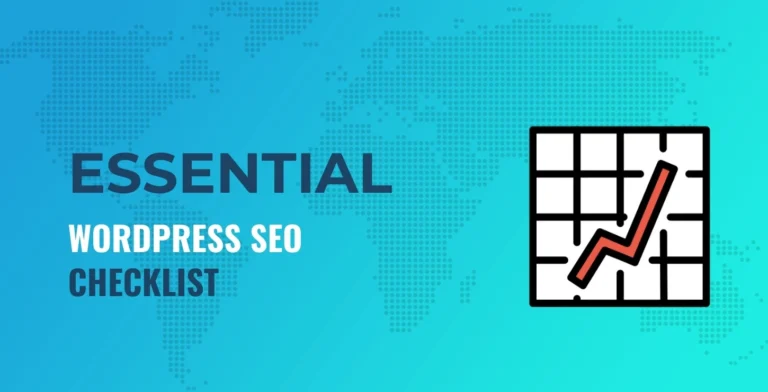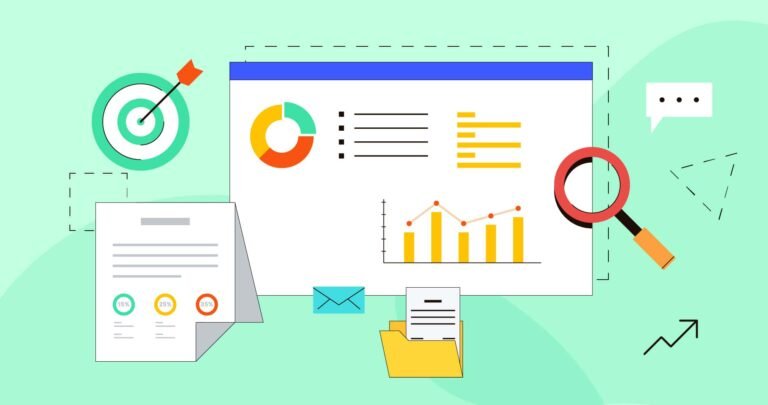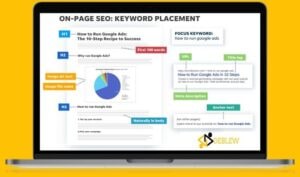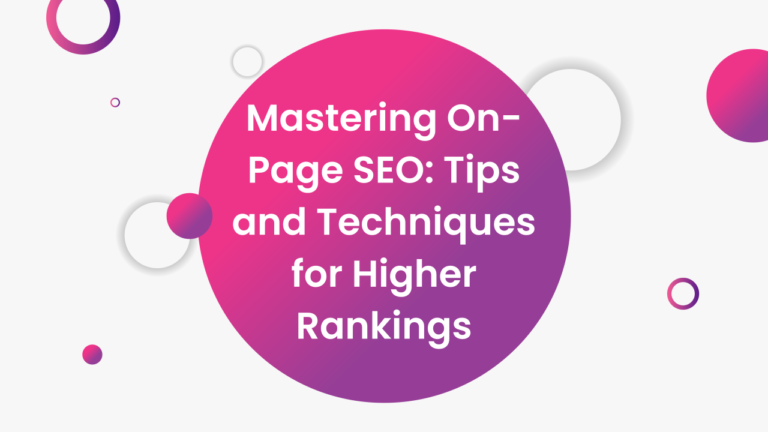Best On-Page SEO Tools to Optimize Your Website for Search Engines
On-page SEO is one of the most crucial components of any successful search engine optimization strategy. It focuses on optimizing the individual pages of your website to help them rank higher in search engines and attract more relevant traffic.
This involves improving content, HTML elements, and user experience. However, doing this manually can be overwhelming. That’s where on-page SEO tools come into play.
In this article, we’ll explore some of the best on-page SEO tools available to help you optimize your website for search engines, making the process easier and more effective.
What is On-Page SEO?
On-page SEO refers to the practice of optimizing web pages to improve their ranking in search engine results and attract more traffic. It includes both content and HTML source code optimization, as well as ensuring that the page is user-friendly and fast.
Key elements of on-page SEO include:
- Content quality: Using relevant keywords, answering search intent, and maintaining a readable structure.
- Meta tags: Optimizing meta titles, descriptions, and header tags.
- URL structure: Creating SEO-friendly, easy-to-read URLs.
- Internal linking: Establishing a clear internal link structure for navigation and SEO.
- Page speed: Ensuring fast page load times, especially for mobile users.
- Mobile-friendliness: Making sure the website functions well on mobile devices.
- Image optimization: Using alt text, compressing images, and ensuring they’re correctly formatted.
On-page SEO is essential because it directly impacts your website’s ability to rank on search engine results pages (SERPs). This contrasts with off-page SEO, which focuses on activities outside of your website, like backlink building. When done right, on-page SEO can boost organic traffic, improve user experience, and enhance your site’s authority.
Key Features to Look for in On-Page SEO Tools
When selecting an on-page SEO tool, it’s important to look for features that cover all aspects of on-page optimization, including:
- Keyword research and integration: Tools that help you find the right keywords and suggest where to place them.
- Content analysis: Evaluating the quality, readability, and structure of your content.
- Meta tag optimization: Ensuring your meta titles and descriptions are optimized for both search engines and users.
- URL structure and internal linking analysis: Improving URL formats and internal linking to increase SEO performance.
- Page speed and mobile-friendliness checks: Monitoring site performance and ensuring a fast, mobile-friendly experience.
- Image optimization: Providing suggestions for alt text and image compression to improve page speed and SEO.
- Headings optimization: Correct usage of H1, H2, and H3 tags for better structure and SEO relevance.
- Structured data and schema markup: Tools that help you implement schema to improve how your page appears in search results.
Top On-Page SEO Tools to Improve Your Website
Here’s a detailed look at the best on-page SEO tools you can use to optimize your website:
Yoast SEO
Yoast SEO is one of the most popular SEO plugins for WordPress users. It offers a range of features to optimize on-page SEO, including meta tag management, keyword integration, and readability analysis.
Features:
- Meta titles and descriptions optimization
- Readability score to improve content flow
- Internal linking suggestions
- Real-time SEO analysis
Best for: WordPress users who want a user-friendly tool for on-page SEO.
SEMrush On-Page SEO Checker
SEMrush offers a comprehensive SEO toolkit, and its on-page SEO checker provides a detailed analysis of your pages. It gives recommendations on improving keyword usage, content structure, and technical SEO issues.
Features:
- Page-specific SEO recommendations
- Keyword integration suggestions
- Technical SEO audits
- Content optimization tips
Best for: Users who need a complete SEO solution with in-depth recommendations.
Surfer SEO
Surfer SEO is a data-driven on-page SEO tool that helps you optimize content by comparing it with top-ranking pages. It analyzes keyword usage, content structure, word count, and other on-page elements.
Features:
- Content analysis based on top-ranking competitors
- Keyword usage recommendations
- Word count and structural suggestions
- Content planner for future articles
Best for: Users who want detailed content optimization based on competitor analysis.
Google Search Console
Google Search Console is a free tool provided by Google to monitor your site’s performance in search results. It helps you fix indexing issues, inspect URLs, and analyze your site’s traffic and performance.
Features:
- URL inspection tool
- Search performance analysis
- Indexing and coverage reports
- Mobile usability checks
Best for: Monitoring site performance and identifying any indexing or crawling issues.
Ahrefs Site Audit
Ahrefs is known for its powerful backlink analysis, but it also provides a robust on-page SEO tool in the form of its Site Audit feature. This tool crawls your website and provides insights into technical and content issues.
Features:
- On-page SEO audit
- Broken link checking
- Content quality assessment
- Internal linking recommendations
Best for: Users looking for a combination of technical and content analysis.
RankMath
RankMath is another excellent WordPress plugin for on-page SEO. It offers detailed SEO analysis, meta optimization, keyword suggestions, and integration with Google Search Console.
Features:
- Real-time keyword analysis
- Custom meta tags optimization
- Structured data support
- Integration with Google Search Console
Best for: WordPress users who need a feature-rich, easy-to-use plugin for on-page SEO.
How to Use These Tools Effectively
Using SEO tools effectively involves more than just running an analysis; you need to apply the insights they provide. Here’s how to maximize their potential:
- Set up your tools: Install plugins like Yoast SEO or RankMath on your WordPress site, or integrate Google Search Console for performance monitoring.
- Analyze the data: Use tools like SEMrush or Ahrefs to identify on-page SEO issues like missing meta tags, slow page speed, or poor keyword usage.
- Implement changes: Based on the recommendations, optimize your content, update meta tags, and ensure your pages are mobile-friendly.
- Monitor progress: Continuously check your site’s SEO health using tools like Google Search Console and Surfer SEO, and make regular updates to stay optimized.
On-Page SEO Best Practices to Follow
To further improve your on-page SEO, follow these best practices:
- Keyword placement: Use your primary keywords in the title, headings, and throughout your content, but avoid keyword stuffing.
- Meta title and description optimization: Ensure your titles and descriptions are concise, include keywords, and encourage click-throughs.
- SEO-friendly URLs: Keep URLs short, descriptive, and include relevant keywords.
- Mobile optimization: Ensure your site is mobile-friendly, as mobile-first indexing is critical for ranking.
- Heading structure: Use H1 for the main title, and break content into H2 and H3 subheadings for better readability and SEO.
- Image optimization: Include alt text for images and compress them to reduce load times.
Conclusion
On-page SEO is an essential part of optimizing your website for search engines and users alike. By using the right tools like Yoast SEO, SEMrush, and Google Search Console, you can effectively improve your content, technical SEO, and overall site performance. As search engine algorithms evolve, regularly auditing and updating your on-page SEO will ensure your site stays competitive.
FAQs
What is the difference between on-page and off-page SEO?
On-page SEO refers to optimizing individual web pages, while off-page SEO focuses on activities outside your site, such as backlinks.
Do I need to use paid SEO tools?
While free tools like Google Search Console are helpful, paid tools often offer more detailed insights and features for comprehensive optimization.
How often should I optimize my website for on-page SEO?
Regular audits (every few months) are recommended, especially after major content updates or algorithm changes.
Can I use multiple on-page SEO tools together?
Yes, combining tools like Yoast SEO, SEMrush, and Google Search Console can provide a more comprehensive view of your site’s SEO health.
By following the tips and using the tools mentioned above, you’ll be well on your way to boosting your website’s rankings and overall SEO performance.







